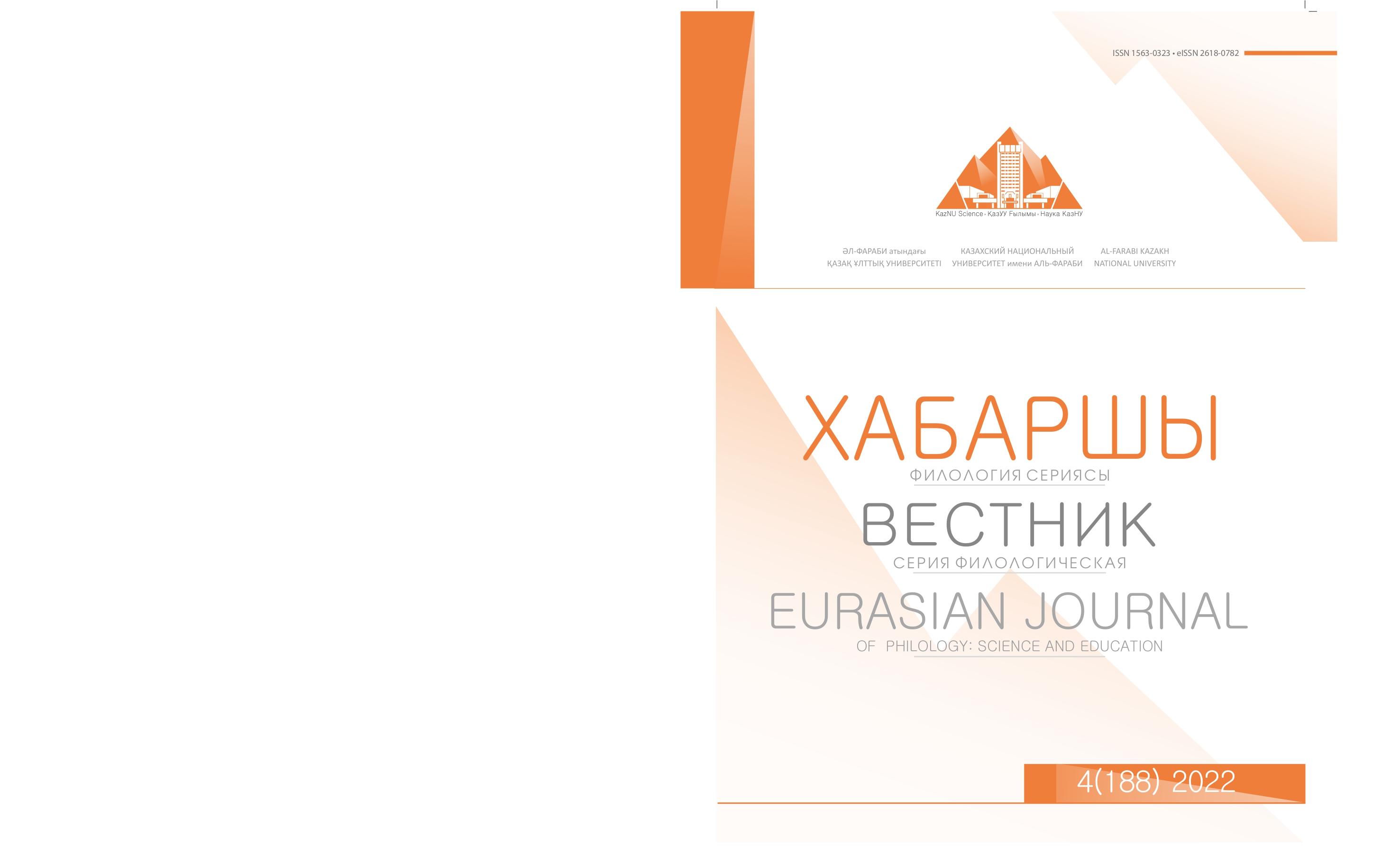Techniques for the formation of linguocultural competence through the study of forbidden words for students in grade 7
DOI:
https://doi.org/10.26577/EJPh.2022.v188.i4.014Abstract
The article deals with the problem of the representation of the taboo vocabulary of the Kazakh language in a textbook for the 7th grade of a general education school. In particular, we are talking about the study of taboos and euphemisms, dysphemisms, superstitions and "forbidden" vocabulary, which in general can be classified as lexical prohibitions.
Superstitions and prohibitions were perceived as the law of society and as generally accepted principles. In this regard, for each Kazakh, these concepts had a high linguocultural value. The article reveals such features of forbidden vocabulary as unconditional execution, non-execution and other properties of words used on the basis of strict rules. Forbidden words, absorbing national ideas about life and death, nature and knowledge, morality, reflect the moral prerogatives of the Kazakh society.
Familiarization of students of modern schools of Kazakhstan with forbidden words goes beyond the limits of grammatical knowledge and contributes to the formation of linguocultural competence and the formation of the moral foundations of the younger generation. The approaches to the study of taboo vocabulary displayed in the article complement the methodology of teaching the Kazakh language and have practical value.






